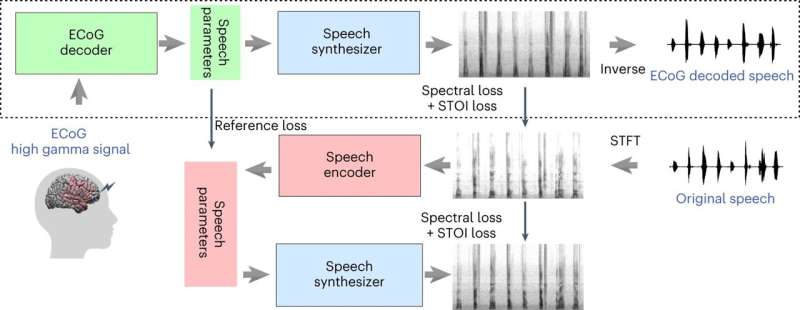Losing the ability to speak due to neurological damage can be incredibly isolating. But thanks to recent advancements in technology, there’s hope on the horizon. Scientists have been working on neural speech prostheses, special devices that can help people who have trouble speaking by translating brain activity into speech.
In a recent study published in Nature Machine Intelligence, a team of NYU researchers led by Yao Wang—Professor of Electrical and Computer Engineering and Biomedical Engineering at NYU Tandon, as well as a member of NYU WIRELESS—and Adeen Flinker—Associate Professor of Biomedical Engineering at NYU Tandon and Neurology at NYU Grossman School of Medicine—and Tandon ECE Ph.D. student Xupeng Chen presented a significant advancement in the decoding of speech using neural architectures.

They recorded signals from the brain and transformed them into audible speech. Building upon previous research, their work introduces modifications that enhance decoding accuracy across a broader range of voices.
| More information: Xupeng Chen et al, A neural speech decoding framework leveraging deep learning and speech synthesis, Nature Machine Intelligence (2024). DOI: 10.1038/s42256-024-00824-8 |
| Journal information: Nature Machine Intelligence |
| Article Source: Medical Xpress |
